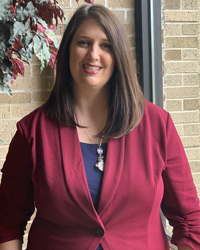Barriers or Challenges Nurses Face When Continuing Their Education
John Templeton said, "By facing our challenges and overcoming them, we grow stronger, wiser, and more compassionate." We all face challenges on a daily basis. To be honest, change is what leads us to growth. Without it we wouldn't evolve as human beings over the course of our lives. But challenges within our work can be viewed differently. When we implement new strategies into our teaching it may seem overwhelming, frustrating, and even time consuming despite the positive outcomes this change might bring. Why is it so difficult for us to see the good that can come from changing our methods? Is it because we fear learning new things or worry that something new will change the pattern of our workflow?
While some of the same challenges exist in the workplace such as work overload and burnout, there are some differences in the area of nursing education. For example, bedside staff nurses face heavy patient loads with the lack of support staff. They also face burnout, especially in recent times due to the national pandemic. Nurse educators too must handle heavy workloads and burnout but in a different way. How do you handle teaching a full load of classes, advising, meetings, and all of the time that goes into preparing your content? Is this a delicate balance that is on a daily verge of crashing? Some other challenges we see as the educator could be lack of learner interest, lack of effort, and incivility, just to name a few.
So, the question at hand is, how do you handle these challenges? As the educator we must employ our own teachings! We must practice the very things we advise our students to do. Implementing a schedule and planning your time, utilizing support from colleagues, and finding an organizational system that works for you will prove to be beneficial to your workflow. For those who are new to academia, having a mentor would be a helpful way to ease new faculty fully into the role and provide them with the necessary support to lead to positive outcomes.
For me, the passion to teach is rooted in helping others. I remind myself that I enjoy leading student nurses through their classes and clinical experiences, which for them can sometimes be challenging. As nurses we are well versed in adapting to changing situations and thinking critically on our feet. This is no different for the nurse educator. We must continue to find challenges we face and turn them into something positive. I have found that as a nurse educator I am committed to this quote by Tyrese Gibson, "You will always grow through, what you go through". The current pandemic has pushed our classrooms to the online format. We have had to adapt, modify, and relearn how to teach our curriculum. These challenges have also gained us experience with technology in new ways, reaching our learners in a new format, and allowing us to connect with colleagues despite not being in the same room. I believe these challenges have helped us to "grow through" this pandemic and transformed us into more reachable nurse educators. How are you growing today?
Learn more about how you can pursue a career as a nurse educator through Walsh University's Master of Science in Nursing - Nurse Educator (BSN to MSN-NE) and Doctor of Nursing Practice – Nurse Educator (BSN to DNP-NE) programs, offered fully online!
About the Author

My name is Colleen Wiley and I am a nurse educator. Growing up I always wanted to be a teacher, but I also had an interest in learning about science. I have always loved helping people which is why I chose to pursue a career in nursing. I spent my time in undergraduate nursing school working as a nurse intern on a medical surgical unit. After graduation in 2005, I worked at the bedside caring for post-operative patients and I loved it! Eventually, I started offering to train new employees and I would also take on nursing students for their clinical preceptorship. It was then that I truly realized my real passion was seeded in becoming a nurse educator! I started working as an adjunct clinical instructor in 2010 and immediately knew this was the path for me. A fire was lit inside of me! That burning feeling of helping others was reignited as I shifted my focus from helping sick and/or recovering patients in the acute setting to helping students learn how to become a nurse. I pursued a graduate degree in nursing education which I earned in December of 2014. I have been working as a nurse educator ever since I took that first leap back in 2010.
Source: https://www.walsh.edu/news/Nurse%20Educator/challenges-for-nurse-educators.html
0 Response to "Barriers or Challenges Nurses Face When Continuing Their Education"
Post a Comment